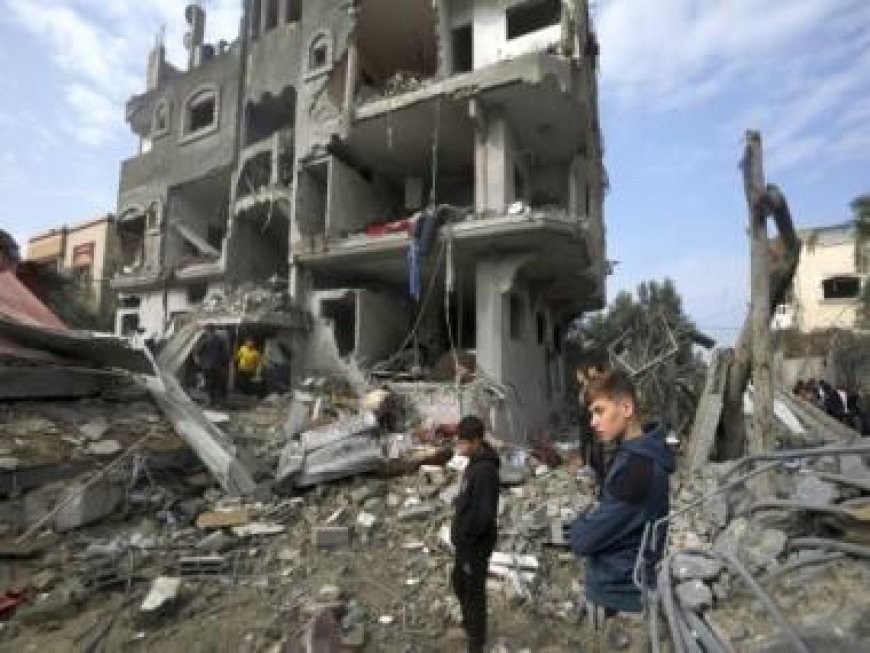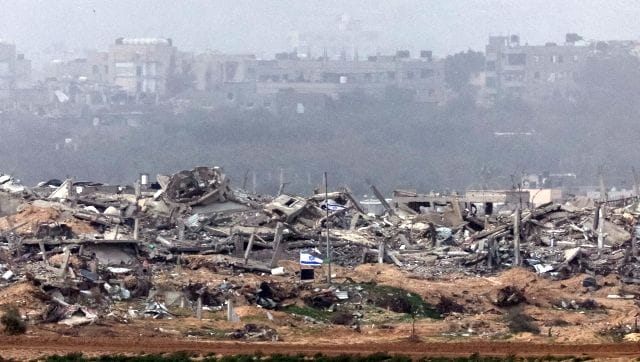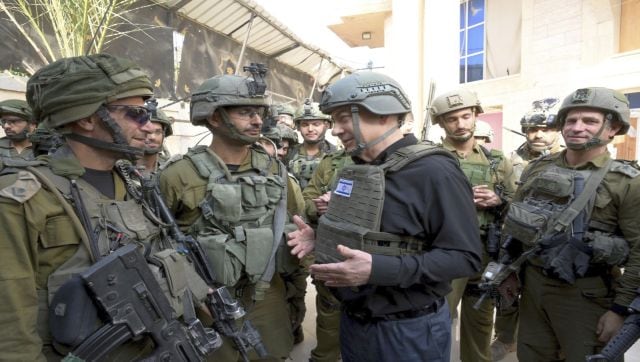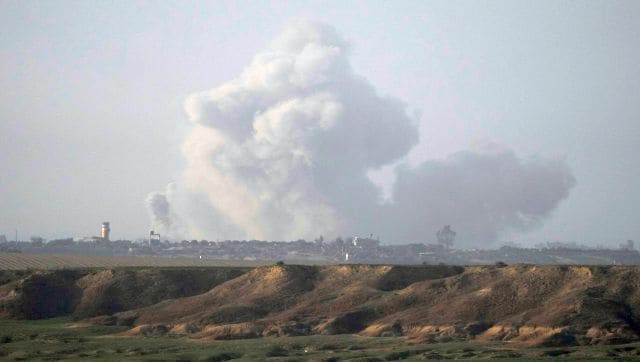Why Egypt’s peace plan is finding no support from Israel, Hamas
Why Egypt’s peace plan is finding no support from Israel, Hamas

The Israel-Hamas war continues to rage – it’s Day 81 – and according to the United Nations, there’s no let-up in the fighting. Israeli prime minister Benjamin Netanyahu, who visited troops in northern Gaza on Monday, vowed to keep up the fight and dismissed claims of calling for a halt in fighting. “We are not stopping. The war will continue until the end, until we finish it, no less,” he was quoted as saying.
The fighting has intensified in the Gaza Strip with Palestinian residents reporting several airstrikes near Nasser Hospital in Khan Younis, the largest medical facility located there.
But amid this fighting, there is some hope of peace, as Egypt presented what is now being described as an ambitious plan to end the war in Gaza with a ceasefire. But will Israel and Hamas accept the deal?
We get you the answers.
The Egypt peace plan
On Monday, Egypt presented an ambitious plan to bring the hostilities to an end to Israel, Hamas, the United States and European governments. According to reports, those who have viewed the plan, call it one of the most comprehensive and detailed one amid the war.
The proposal has three stages and, if accepted, is expected to bring sweeping changes to the Gaza Strip as well as bring about peace in the region.
According to the proposal, which has the backing of Qatar, there would be a two-week halt to the fighting, extendable to three or four weeks, in exchange for the release of 40 hostages kidnapped from Israel. In return, Israel would release 120 Palestinian security prisoners who fit the same categories as the hostages released. During this time, fighting would stop and humanitarian aid would enter Gaza.

The second phase of the plan would see Hamas releasing all female Israeli soldiers in return for more Palestinian prisoners, taking place during another weeklong truce. At the same time, talks would be held to form a technocratic government in the West Bank and Gaza and pave the way for Palestinian parliamentary and presidential elections.
And the final phase of the plan would include a comprehensive ceasefire, the release of all Israeli hostages, including soldiers, reported the Times of Israel. Furthermore, Israel would withdraw its forces from the Gaza Strip and allow displaced Gazans to return to their homes.
How Israel has reacted to Egypt’s plan
Reports have stated that Israel’s war Cabinet met on Monday night to discuss Egypt’s proposal. Israel’s government is now facing intense pressure from families and loved ones of those held hostage to bring them home.
Israeli minister Benny Gantz told a group of hostage families on Sunday night that there are several proposals in the works to release those held but signalled it wasn’t clear they were all being seriously considered. “There are Egyptian proposals and there are other proposals flying around from all kinds of directions. I don’t even know which of them are even relevant,” he was quoted as saying, according to a report by the Wall Steeet Journal.

However, it seems that Israeli prime minister Benjamin Netanyahu has dismissed the plan, stating “Hamas must be destroyed, Gaza must be demilitarised, and Palestinian society must be deradicalised.”
In fact, speaking to troops on Monday, he said: “We are not stopping. Anyone who talks about stopping — no. We’re not stopping. This war is going to go until the end. Until we finish them. No less than that.”
Even Israel’s finance minister Bezalel Smotrich rejected the Egypt plan. “The war Cabinet has no mandate to stop the war before all the war aims have been achieved,” he was quoted as saying by the Times of Israel.
But why is Israel refusing to budge? Mohammed Cherkaoui, a professor of conflict resolution at George Mason University, told Al Jazeera that one of the challenges is a ceasefire versus a truce. “Palestinians are talking about a full-fledged ceasefire. The Israelis are hearing a ‘truce,’ a pause.”
Moreover, Netanyahu would have to pull back from its stated mission of eradicating Hamas.
As Gershon Baskin, who previously negotiated a hostage-release deal on Israel’s behalf told the Wall Street Journal, “This deal is really a victory for Hamas and it’s really difficult for me to see the Israelis agreeing to that.”
Hamas rejects Egypt plan
And it seems that even Hamas has rejected Egypt’s peace proposal. News agency Reuters has reported that Hamas and the allied Islamic Jihad have rejected the proposal that they relinquish power in the Gaza Strip.
Izzat al-Rishq, a member of Hamas’ political bureau, however, denied these claims, but said: “There can be no negotiations without a complete stop to the aggression.
“The Hamas leadership is aiming with all its might for a complete, not temporary, end to the aggression and massacres of our people.”

Even Hamas leader in the Gaza Strip, Yahya Sinwar has dismissed the Egypt plan. In a public message, his first since the 7 October attack, Sinwar reportedly said that that Hamas was on its way to crushing the Israel Defense Forces, and, referring to Israel, said Hamas will not submit to “the occupation’s conditions.”
The Islamic Jihad, which holds hotages in Gaza, also echoed Hamas’ refusal. According to a Reuters report, an Islamic Jihad delegation led by its leader Ziad al-Nakhala is currently in Cairo to exchange ideas with Egyptian officials over prisoner swap offers and other issues. However, they are unwilling to accept the Egypt plan.
They insist that any prisoner swap must be based on the principle of “all for all”, which means the release of all hostages held in Gaza by Hamas and Islamic Jihad in return for freeing all Palestinians jailed in Israel.
War continues to extract a heavy toll
The Israel-Hamas war, which began after the 7 October attack, has entered its 12th week, with neither side willing to relent. The devastating air and ground campaign in Gaza has killed more than 20,400 Palestinians, including 8,200 children.
And on Monday, the war worsened with Gaza witnessing one of its deadliest nights, with health officials saying that at least 70 people had been Israeli air strike in the centre of the tiny, besieged Gaza Strip.
Meanwhile, the anger against Netanyahu is also rising. On Monday, as he spoke in the Israeli Parliament, relatives of the hostages interrupted him and called for their immediate return. “Now! Now!” they shouted.
Families heckled the prime minister, as Netanyahu said Israeli forces needed “more time” to increase military pressure on Hamas, which he argued would help to secure the captives’ release. Moreover, the death of Israeli soldiers has also angered the public. On Monday, the Israeli military announced the death of two more soldiers, bringing the total to 156.
With inputs from agencies
What's Your Reaction?



























































